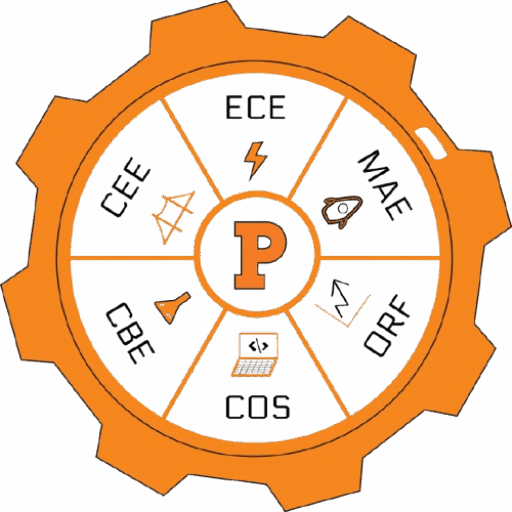People to Know, and a
Very Important Three-Letter Word
The three-letter word is ask, which is what you should do if you ever have any questions or concerns about anything. The following is a compendium of knowledgeable people to ask. I promise that none of them bite.
First of all, you can ask any of us on the Engineering Council. We’d be happy to help you out. Additionally, we have open membership, so if you’re interested in joining our mailing list and attending meetings, we’d be glad to have you help out. You’ll meet a lot of great people. Just drop us a line.
Official Resources
The Office of the Assistant Dean for Undergraduate Affairs (ACE-23) is a great resource for academic advice, suggestions for summer internships, and counseling for frazzled engineers. Dean Bogucki (pronounced bow-good-ski) and his staff are very friendly, helpful, and knowledgeable; they’ve been through all this for years and are more than happy to assist you however they can. Dean Bogucki is also very helpful in providing announcements about talks and activities and for pointing out leads for summer internships; watch your e-mail for messages from him. So, if you can’t decide what kind of an engineer you want to be (or whether you want to be an engineer at all), if you have questions about taking summer courses, if you’re looking for an internship, or if you just need someone else to provide some perspective, get to know Dean Bogucki. You can e-mail him at, set up an appointment through his amazing secretary Traci Miller, or just drop by.
Departmental secretaries are also great sources of information. If they can’t answer your question, they’ll be happy to direct you to someone who can. You can generally find them in the main offices of each department:
- Mechanical and Aerospace Engineering (MAE)– E-Quad D230
- Civil and Environmental Engineering (CEE) — E-Quad E212
- Operations Research and Financial Engineering (ORF)– E-Quad E220
- Chemical Engineering (CBE) — E-Quad A201
- Electrical Engineering (ECE) — E-Quad B304
- Computer Science (COS) — Computer Science Building 410
You and a small group of fellow students from your residential college will share a faculty adviser and a couple of Peer Interactors. Since many entering freshmen are undecided about their major and so many of the freshman year requirements are the same for everyone, advisers are not assigned by prospective major. They will help you through the course selection process and the first few weeks of classes. Among other things, they’ll make sure you take a reasonable course load and remain on track to fulfill all necessary engineering program requirements. The Interactors are students, too, so take advantage of the opportunity to ask them all the burning questions that you wouldn’t ask your adviser.
Student Organizations
First-year students are also encouraged to participate in the activities of the following undergraduate engineering organizations:
- American Institute of Chemical Engineers (AIChE) Student Chapter
- American Society of Civil Engineers (ASCE) Student Chapter
- Princeton Materials Research Society (PMRS)
- Princeton Operations Research Society (PORS)
- American Society of Mechanical Engineers (ASME) Student Chapter
- Association for Computing Machinery (ACM) Student Chapter
- National Society of Black Engineers (NSBE)
- Society of Hispanic Professional Engineers (SHPE)
- Society of Women Engineers (SWE)
- Princeton’s Engineering Education for Kids (PEEK)
- American Institute of Aeronautics and Astronautics (AIAA) Student Chapter
